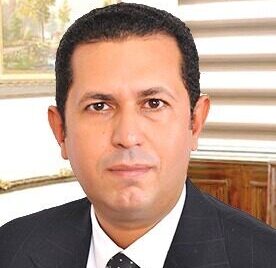Under the slogan “Everything Starts Locally”, Cairo hosted the 12th World Urban Forum (WUF12), one of the most important international events on the United Nation’s agenda, between November 4 and 8.
The WUF12 underscored Egypt’s efforts to achieve urban development, not only at the national level, but also globally.
The Egyptian government aimed to address the issues of urban expansion, climate change, and the improvement of the quality of life in cities.
By organising this forum, Egypt reaffirmed its commitment to supporting local solutions and enhancing partnerships between governments, the private sector, and the civil society.
These efforts are not merely national attempts, but actively contribute to achieving the global goals set by the United Nations.
The WUF12 highlighted the need for solutions to arise from within local communities to address crises.
The “Everything Starts Locally” concept reflects a deep understanding of residents’ experiences and needs.
Sustainable solutions require effective collaboration between governments, the private sector, and local communities.
This was emphasised by UN representative, Sanda Ojiambo, who called on businesses to support governments and communities in creating sustainable cities.
The WUF12 aimed to accelerate the localisation of the sustainable development goals (SDGs), turning global objectives into tangible improvements in people’s lives by 2030.
This ambition presents a major challenge, especially given current global conditions.
The Executive Director of the United Nations Human Settlements Programme, Anaclaudia Rossbach, revealed that over a billion people live in informal settlements around the world, necessitating effective steps to improve their living conditions.
The importance of local communities lies in their ability to identify their problems and find innovative solutions, as Rossbach noted.
The role of local leaders, especially women in marginalised areas, becomes crucial in facing crises like the COVID-19 pandemic and climate change.
Strong communities are those capable of adaptation and innovation, which requires continuous support from governments and international bodies.
Within this context, experiences from some countries, such as the Philippines, were highlighted, where the Union of Informal Settlers launched initiatives to strengthen the ability of poor communities to face challenges.
Involving residents in decisions affecting their lives is a fundamental step towards improving their conditions.
Additionally, using new technologies, such as constructing homes with environmentally friendly materials, serves as a model to follow.
The WUF12 served as a cornerstone for achieving the SDGs.
We have to recognise that true change starts from the grassroots and that society is the primary driver of development.
This makes the success of this forum contingent on the ability of all parties to collaborate and work together towards a better future.
Mohamed Fahmy is the editor-in-chief of The Egyptian Gazette and Egyptian Mail newspapers [email protected]






Discussion about this post